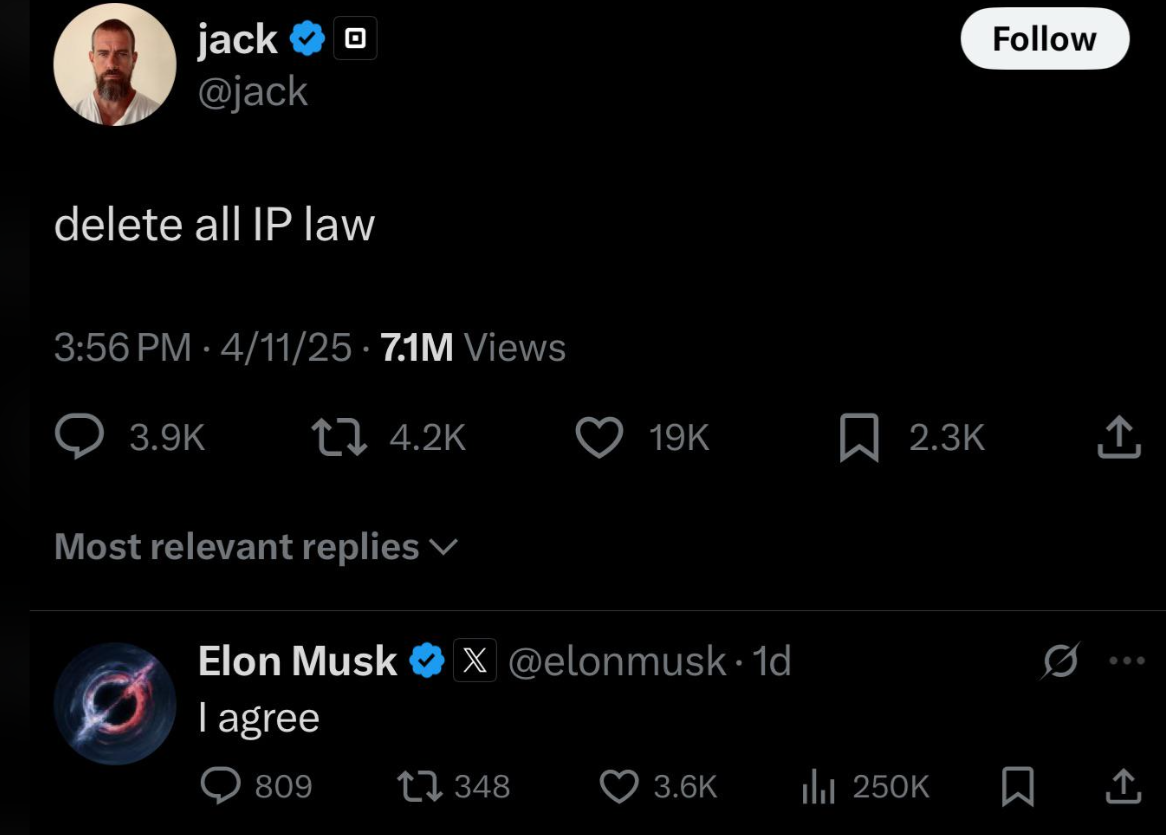
Why deleting all IP laws is a risky proposition for innovation, especially in healthcare
Why deleting all IP laws is a risky proposition for innovation, especially in healthcare
A tweet from Jack Dorsey, co-founder and former CEO of Twitter, recently stirred debate across the internet. Dorsey simply wrote “delete all IP laws”, a sentiment that was quickly endorsed by Elon Musk. While at first glance this proposal may seem progressive or even utopian by abolishing monopolies and high costs, a closer inspection reveals a complex and potentially disastrous consequences for innovation, investment, and public interest in the long term.
The short-term appeal : Lower prices and faster access
Let’s admit it, the idea has immediate appeal. Without patents or exclusivity, the monopoly grip of Big Pharma would loosen, anyone could manufacture and sell generic versions of life-saving drugs, vaccines, and treatments. Prices would plummet and access would skyrocket. Patients in low-income countries could afford cutting-edge therapies.
This argument resonates strongly in the context of global health crises, where IP protections are often blamed for delays in drug availability and drug access.
But here’s the catch : if no one can protect their innovation, who’s going to pay to create the next one ?
The long-term risk : A collapse in innovations
Research & Development isn’t free, it’s a gamble. Researching, developing, and testing a new drug can take over a decade and cost billions of dollars. Without the promise of market exclusivity temporarily granted by patents, why would any biotech startup, research lab or company invest in such a risky and expensive process ?
Any innovation could be instantly copied by competitors with no development cost. The logical outcome ? A long-term drought in medical progress.
The rise of trade secrets and the loss of public knowledge
Ironically, if IP laws vanish, innovation won’t become more open, it could become more secretive. Patents require public disclosure for temporary exclusivity: if you want protection, you have to disclose your work. This disclosure is vital. Much like scientific publications, patents allow others to learn from and build upon existing ideas, even before they expire.
If companies can no longer rely on patents to protect their inventions; they may resort to trade secrets and never disclose how their products work. And contrary to patents, trade secrets provide no shared benefit to the public or to future inventors.
Leveling the playing field for small companies
And here’s something often overlooked: IP laws don’t just protect big pharmaceutical companies; they also level the playing field for smaller startups. Startups and smaller companies often rely on patents to attract investment and protect their innovations from being poached by better-funded competitors. Without IP protection, larger companies could easily copy, scale and dominate any successful innovation developed by a smaller player.
Innovation needs protection to thrive
Patents don’t just grant a temporary monopoly; they encourage risk-taking and investment in long-term research. They require innovators to publish their findings, thus adding to the global body of knowledge. And they expire, ensuring that society ultimately benefits from open access to once-protected technologies.
